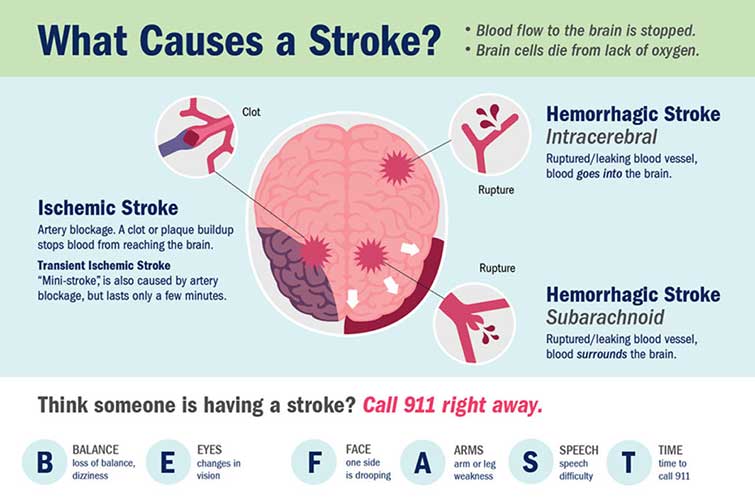Ree Drummond, affectionately known as The Pioneer Woman, has become a household name for her culinary expertise and vibrant personality. Her journey from a city girl to a ranch wife has inspired countless individuals worldwide. However, recent discussions about her health have drawn attention to the challenges she has faced, particularly surrounding strokes. This article dives deep into the circumstances surrounding her health, the implications of strokes, and the importance of awareness regarding this serious medical condition.
Over the years, the term "Pioneer Woman stroke" has become a focal point in health discussions, highlighting the profound impact strokes can have on individuals and their families. Strokes are sudden and can leave long-lasting effects, not just on the affected person but also on their loved ones. As we delve into the details, we aim to provide a comprehensive understanding of the potential causes, symptoms, and preventive measures associated with strokes, using The Pioneer Woman's experience as a backdrop.
As we explore this sensitive topic, we will also emphasize the significance of understanding stroke risk factors, the role of lifestyle choices, and the importance of seeking timely medical intervention. By the end of this article, we hope to equip readers with the knowledge needed to recognize the signs of a stroke and take proactive steps toward a healthier life for themselves and their loved ones.
Read also:Exploring The Depths Of Mothers Warmth A Journey Through Chapter 3
Table of Contents
- Life and Legacy of The Pioneer Woman
- The Health Challenges Faced by The Pioneer Woman
- A Comprehensive Look at Stroke: Causes and Effects
- Identifying the Symptoms of a Stroke
- Effective Strategies for Stroke Prevention
- The Broader Impact of Stroke on Families and Loved Ones
- Expert Insights on Stroke Awareness
- Final Thoughts
Life and Legacy of The Pioneer Woman
Born as Ree Drummond, The Pioneer Woman has carved out a remarkable niche for herself as a food writer, blogger, and television personality. Her transition from a city lifestyle to life on a ranch has resonated with millions, and her recipes often reflect the heart and soul of American cooking, making her a beloved figure in the culinary world.
Personal Data and Background
| Name | Ree Drummond |
|---|---|
| Date of Birth | January 6, 1969 |
| Occupation | Food Writer, Blogger, Television Personality |
| Notable Work | The Pioneer Woman Blog, The Pioneer Woman Cookbook |
| Family | Married to Ladd Drummond, four children |
The Health Challenges Faced by The Pioneer Woman
Throughout her illustrious career, The Pioneer Woman has been transparent with her audience about her health journey. In recent years, she has openly discussed various health challenges, including the impact of a stroke. Understanding her health journey provides a valuable framework for discussing the underlying causes of strokes and their far-reaching consequences.
A Comprehensive Look at Stroke: Causes and Effects
A stroke occurs when the blood supply to a part of the brain is disrupted, leading to brain damage. There are two primary types of strokes: ischemic and hemorrhagic. Ischemic strokes, accounting for approximately 87% of all strokes, happen when a blood clot blocks a blood vessel, while hemorrhagic strokes result from bleeding in or around the brain.
Primary Causes of Stroke
- High Blood Pressure: Often referred to as the "silent killer," uncontrolled high blood pressure is a leading cause of strokes.
- Heart Disease: Conditions such as atrial fibrillation can increase the risk of blood clots forming, leading to strokes.
- Diabetes: Individuals with diabetes are at a higher risk of developing conditions that contribute to strokes.
- Smoking: Smoking damages blood vessels and increases the likelihood of blood clots.
- Obesity: Excess weight can lead to conditions like high blood pressure and diabetes, both of which are risk factors for strokes.
- High Cholesterol: Elevated cholesterol levels can contribute to the buildup of plaque in arteries, increasing the risk of strokes.
Identifying the Symptoms of a Stroke
Recognizing the symptoms of a stroke is critical for timely intervention. The acronym FAST is a widely used tool to help identify the signs:
- F (Face): Ask the person to smile. Does one side of the face droop?
- A (Arms): Ask the person to raise both arms. Does one arm drift downward?
- S (Speech): Ask the person to repeat a simple phrase. Is their speech slurred or strange?
- T (Time): If any of these signs are observed, it is imperative to call emergency services immediately.
Effective Strategies for Stroke Prevention
Preventing a stroke involves adopting a proactive and healthy lifestyle. Below are some practical measures that can significantly reduce the risk:
- Maintain a Healthy Diet: A diet rich in fruits, vegetables, and whole grains provides essential nutrients that support cardiovascular health.
- Engage in Regular Physical Activity: Exercise helps improve circulation, control weight, and reduce the risk of conditions that contribute to strokes.
- Control Blood Pressure and Cholesterol Levels: Regular monitoring and management of these factors are crucial for stroke prevention.
- Avoid Smoking and Limit Alcohol Consumption: Both smoking and excessive alcohol intake can damage blood vessels and increase the risk of strokes.
- Manage Diabetes Effectively: Keeping blood sugar levels under control can help mitigate the risk of strokes.
The Broader Impact of Stroke on Families and Loved Ones
The effects of a stroke extend far beyond the individual affected. Families often face emotional, financial, and logistical challenges as they navigate the caregiving journey. Understanding the broader impact on families is essential for fostering supportive networks and resources that can help alleviate the burdens associated with strokes.
Read also:Discovering The Impactful World Of Izziebabe96
Expert Insights on Stroke Awareness
Medical professionals stress the importance of awareness and education when it comes to strokes. By understanding the risk factors and recognizing the symptoms early, individuals can take decisive actions to protect their health and well-being. Experts advocate for community-wide initiatives to promote stroke awareness, ensuring that everyone has access to the knowledge and resources needed to prevent strokes.
Final Thoughts
In summary, The Pioneer Woman's health journey has shed light on the seriousness of strokes and the importance of early recognition and prevention. By gaining a deeper understanding of the causes and preventive measures, we can all take meaningful steps toward a healthier lifestyle. We encourage you to leave a comment below, share this article with others, or explore more about health and wellness on our site.
Thank you for reading! We hope to see you back here for more insightful and informative content.


